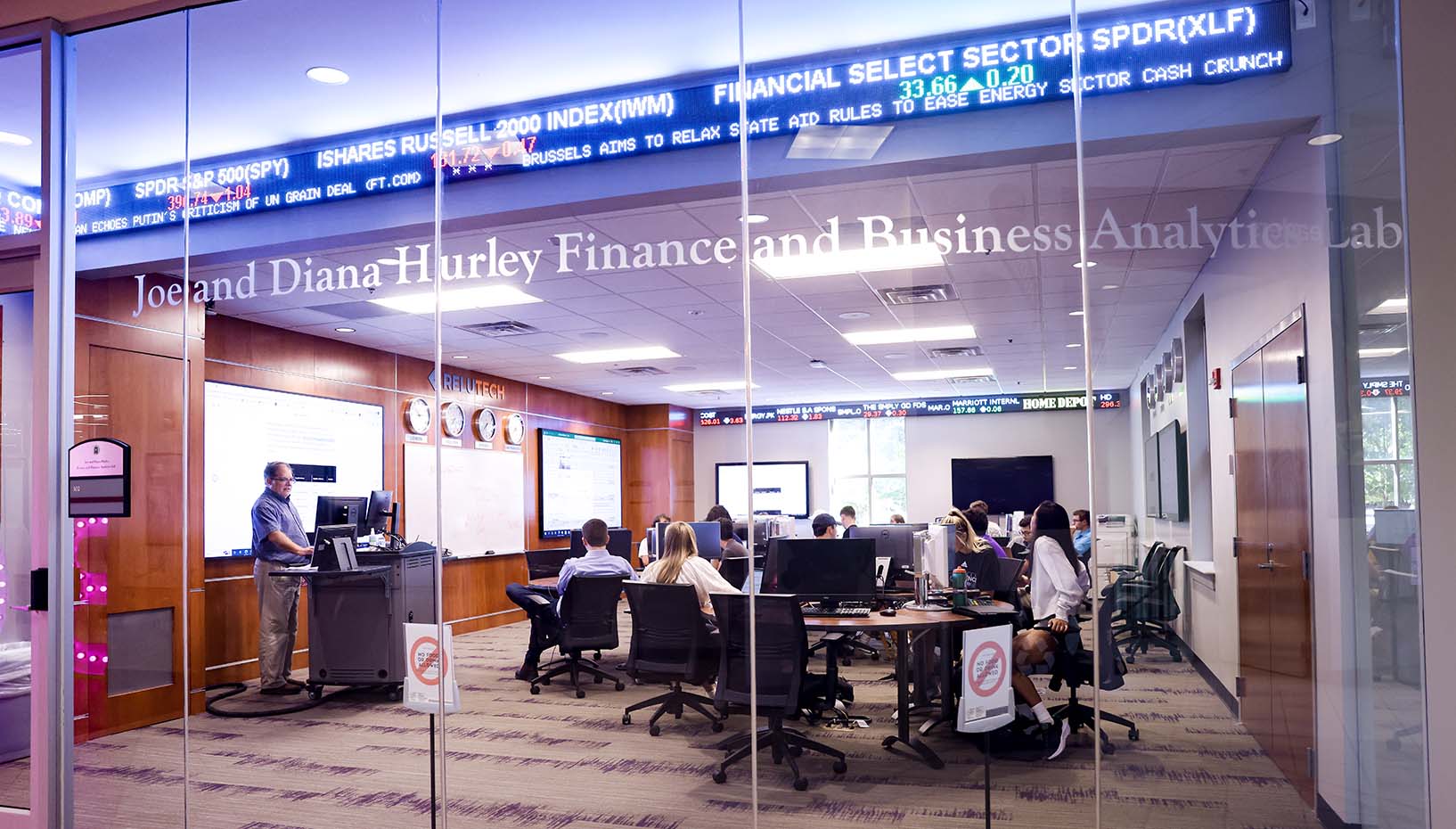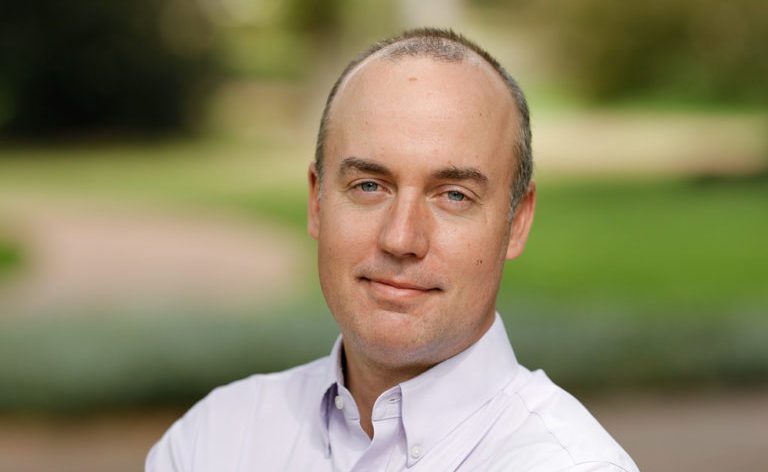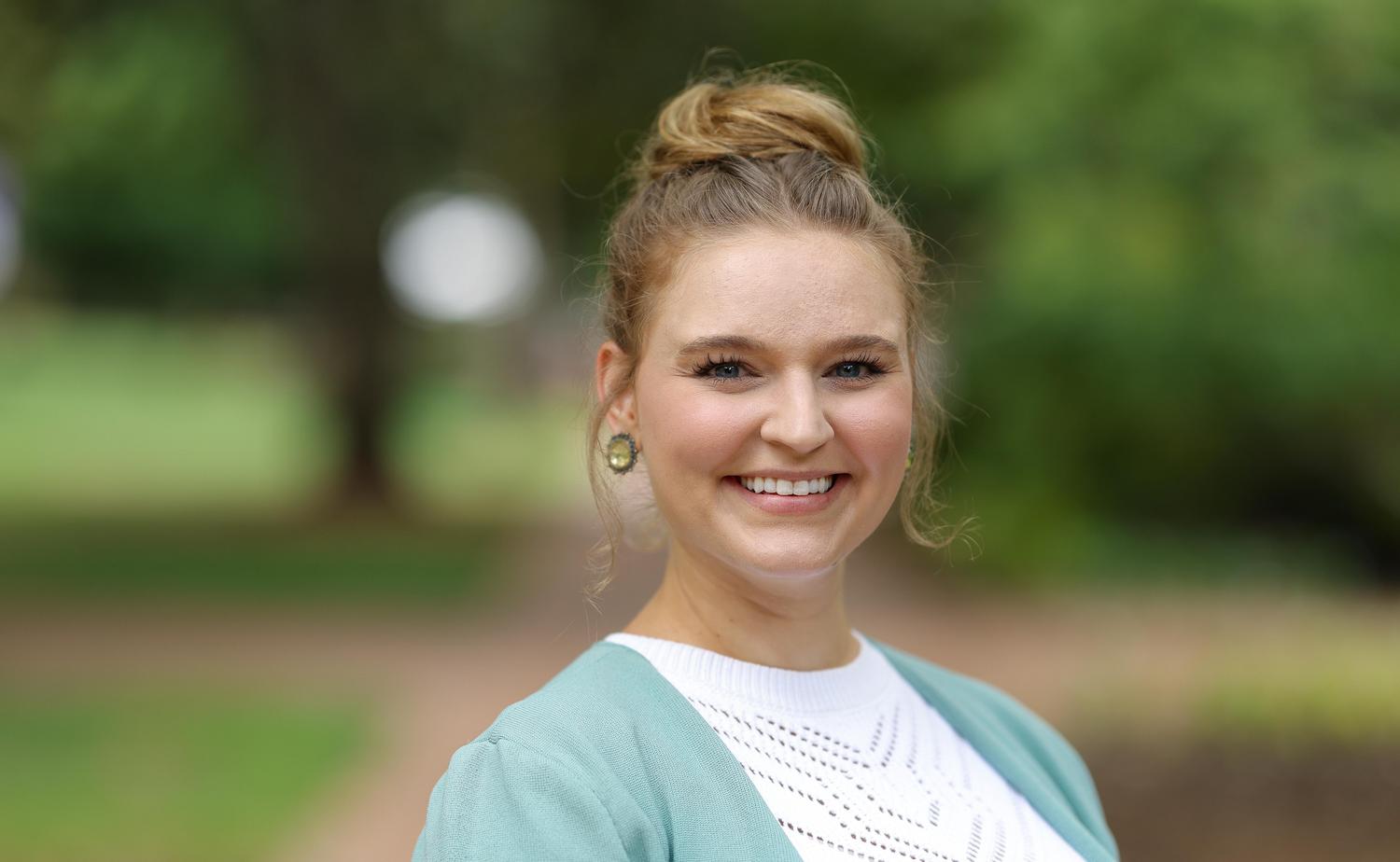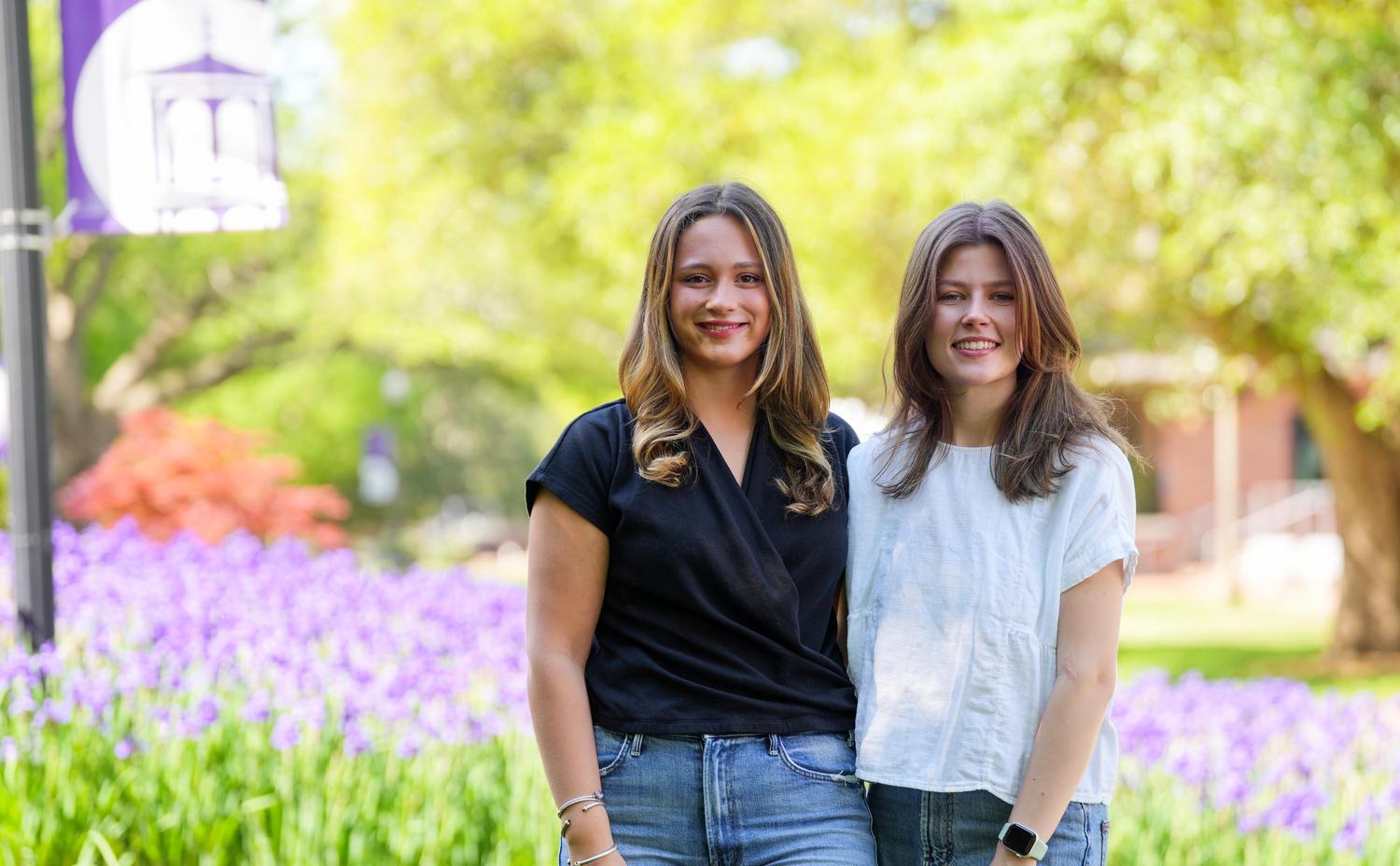Program Overview
Table of Contents
What is an accounting degree?
We lean on accounting to gauge the financial health of businesses large and small, corporations and nonprofits. Investors, stockholders, analysts, banks, the news media and a host of others depend on transparent, accurate and trustworthy indicators of companies’ fiscal wellbeing. Businesses assess opportunities and risk, and forge new paths based on analytics and financial barometers. Accountants tell those stories and serve as advisors and decision makers. An accounting degree develops decision-making, team-building, communication, critical thinking and problem-solving skills while preparing students to enter careers in accounting, tax, auditing, valuation, finance, wealth management, portfolio management and many others.
Why study accounting at Furman?
Whether you’re interested in pursuing a position with a Fortune 500 company or starting your own business, our programs prepare you for a career in the global marketplace. As an accounting major, you’ll reap the rewards of a curriculum built upon experiential exercises and integrated projects to help you understand core accounting principles. Earning an accounting degree in a liberal arts and sciences setting allows students to sharpen written and verbal communication, problem-solving and critical thinking skills that are necessary to succeed in the workplace.
Accounting majors who wish to become CPAs typically attend graduate school in accounting; however, they are also prepared to pursue careers in law, consulting, corporate accounting and related fields. Furman accounting majors are recruited by graduate school programs and in recent years have attended Clemson University, North Carolina State University, Ohio State University, Texas A&M, University of Georgia, University of South Carolina, University of Virginia, Vanderbilt University and Wake Forest University.
Furman has graduate school relationships with accountancy programs at Vanderbilt and Wake Forest, among others. For example, through the Master of Accountancy (MAcc) program at Vanderbilt’s Owen Graduate School of Management, qualified students gain early entry, receive scholarships, and have options for invaluable paid internships with Big 4 firms.
How will you learn?
Throughout their courses in the accounting major, students perform accounting and tax research, work with data analytics tools, complete projects in teams and individually, and explore career options through various events and activities.
During Intermediate Accounting I and III, students participate in a significant service learning project – the United Way Volunteer Income Tax Assistance program (VITA). As VITA volunteers, students volunteer a minimum of 15 hours working on income tax returns for low-income taxpayers. VITA gives students exposure to the practice environment of accounting professionals. It also provides an opportunity for students to enhance their discipline learning, professional competencies, and prepare them for public lives as citizens and professionals in a diverse society.

Careers for accounting majors
While some of these fields and vocations require graduate school, sample professions include:

- Accountant at public accounting firms
- Certified Management Accountant (CMA)
- Certified Public Accountant (CPA)
- Certified Financial Planner (CFP)
- Fin Ops Manager
- Cost accountant
- Government accounting and tax specialist
- Assurance agent
- Financial systems accounting manager
- Personal finance specialist
- Compliance officer
- Credit analyst
- Accounting professor
- Tax accountant
- Entrepreneur
- Banking and finance professional
- Analyst for real estate development firms
- Auditor
- Budget analyst
- Financial planner/analyst
- Tax examiner
- Portfolio/wealth manager
- Information technology professional
- Accountant for private business
- Forensic accountant
- Risk analyst
- Accounting software developer
- Certified Information Technology Professional (CITP)
- Corporate controller
Featured Accounting courses
-
100%Accounting students who participate in any engaged learning experience
-
58%Accounting students who participate in an internship
-
41%Accounting students who participate in May Experience (MayX)
WHAT OUR STUDENTS SAY
Our faculty
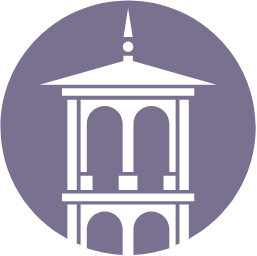
Mark Bettner

Charles Davis

Marion McHugh
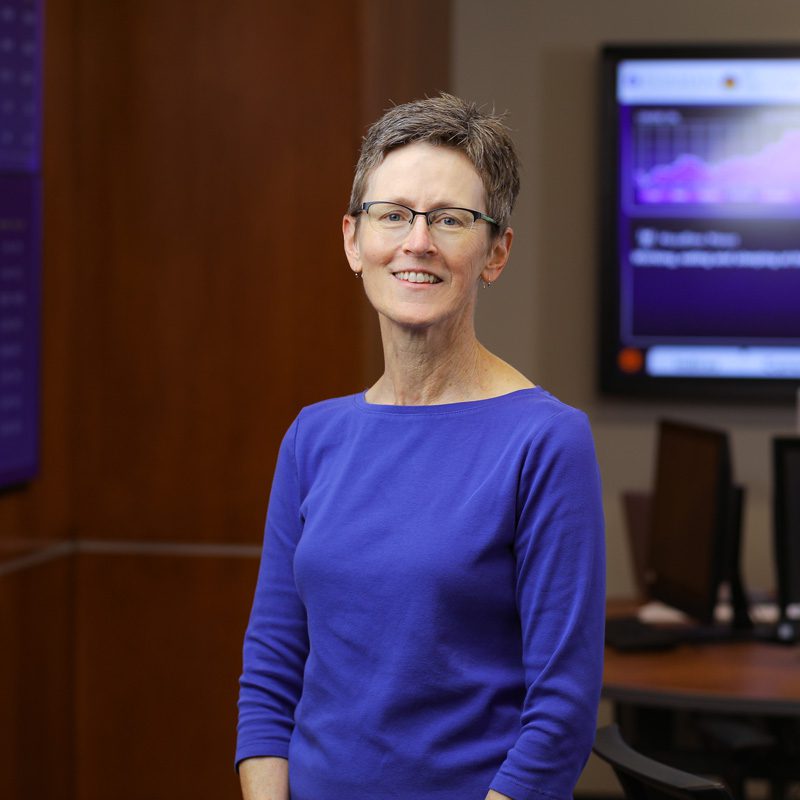
Sandra Roberson
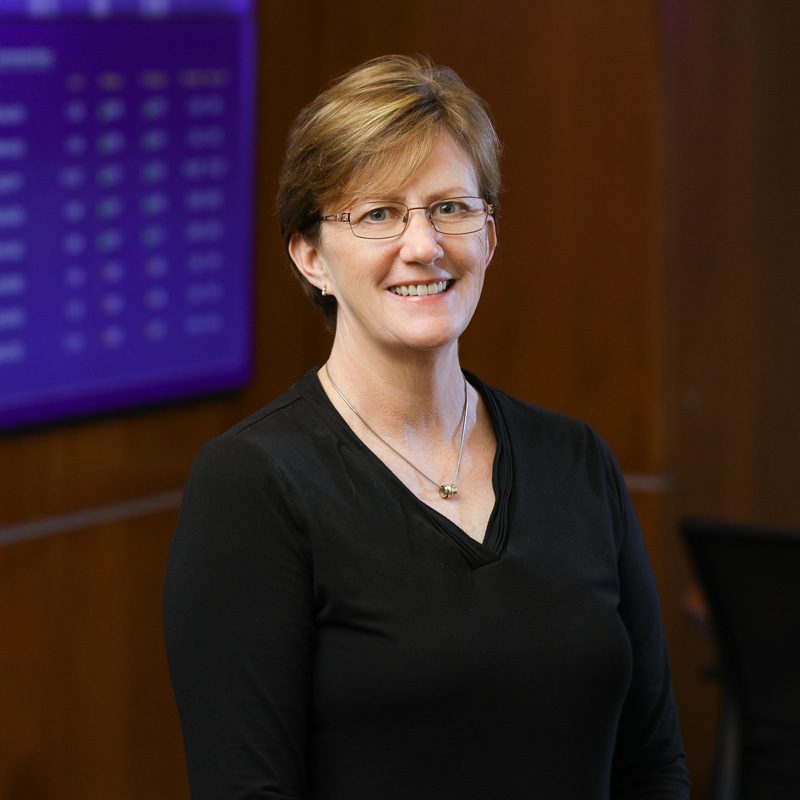
Suzy Summers

Accounting Major F.A.Q.
Employers look to accounting majors to fill an array of accounting positions, including certified management accountant (CMA), certified public accountant (CPA), certified financial planner (CFP), fin ops manager, cost accountant, government accounting and tax specialist, financial systems accounting manager, auditor and personal finance specialist. Other roles inclue financial analyst/planner, investment banker, assurance agent, compliance officer, credit analyst, banking and finance professional, analyst for real estate development firms, budget analyst, tax examiner, portfolio/wealth manager, information technology professional, forensic accountant, risk analyst, accounting software developer, corporate controller, certified information technology Professional (CITP) and more. Some accounting majors further their studies in graduate school to access additional jobs in the field.
The average base salary for accounting majors is $67,000, according to payscale.com.
In recent years, the business and accounting department has sponsored May Experience (MayX) opportunities including “New York, New York: Business at the Top of the World,” “Business Practices and Economies of Southeast Asia,” “From Germany to South Carolina: Examining Economic Globalization Through the Lens of the Global Automotive Industry” and “From Soviet Domination to Flourishing Democracy (Czech Republic).”
The accounting B.A. at Furman is a four-year program.
